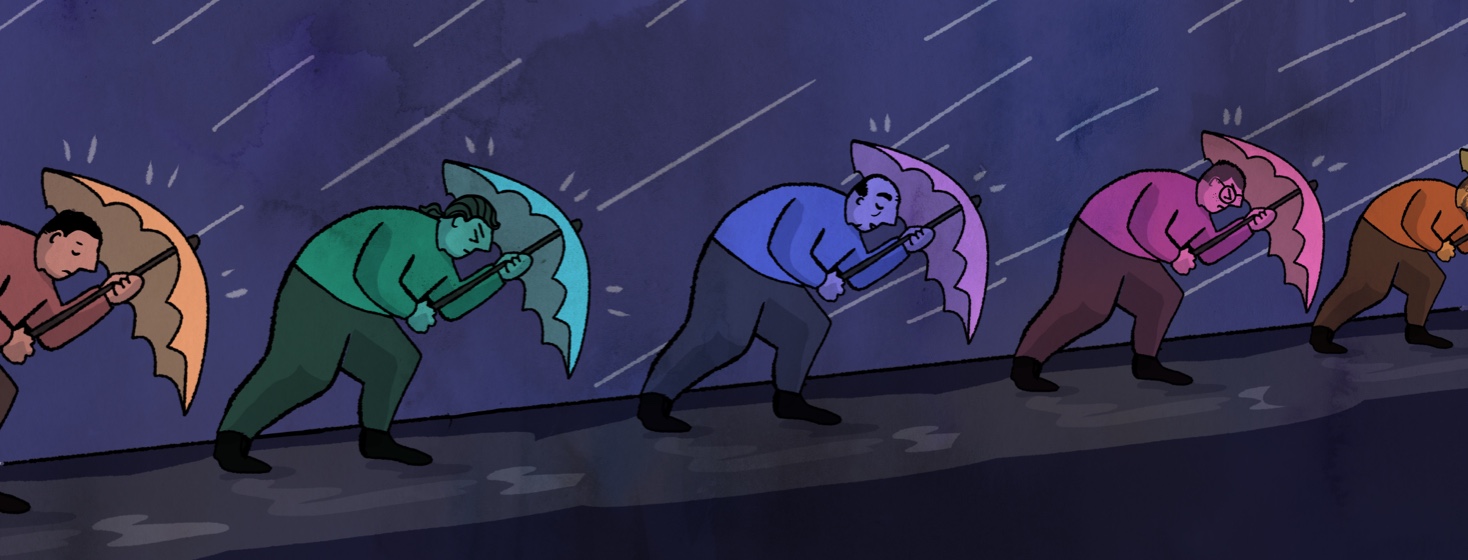A Guy With Depression…
In my work as an independent consultant, I have a love-hate relationship to LinkedIn. On the one hand, it feels like a giant exercise in futility, with millions of frantic businesspeople looking to attract attention. But sometimes, it becomes a place to make meaningful connections, as it was when I posted about my depression last week.
My post got over a thousand impressions (whatever that means) – the most for anything I've posted. Clearly it's a topic we want to talk about.
Being a man who is struggling with depression
The comment which moved me most came from my friend John. He wrote, "I ... struggle with asking for help myself. I don't want to be a burden to friends and family. I don't want to feel insecure or have others perceive me as insecure or needy."
In naming his fear of seeming needy I think he touched on a particular aspect of how depression affects men. I want to acknowledge that "men" can refer to many kinds of people, but for the purposes of this article I will be referring to cisgender men like me.
"Big boys don't cry."
Many of us were raised with old-fashioned, mid-century notions of what constituted "being a man." It can be neatly summed up with the phrase "big boys don't cry." And even if these harmful ideas weren't communicated to us directly, many of us absorbed them through mass cultural messaging.
It's different now, and we're getting better at depicting stories in movies and TV of men needing help with depression. But John and I grew up in the era of the Marlboro Man, Burt Reynolds, and the Sean Connery-era Bond. These were not men who were ever sad, needy, or depressed. And they never asked for help.
Depression makes you feel bad for feeling bad
One of the worst aspects of depression is that it makes you feel bad, and then it makes you feel bad for feeling bad. It comes upon us unexpectedly, for no apparent reason, which feeds the urge we have to think: I shouldn't feel this way. I just need grit my teeth, put on a happy face, and get through it.
For years, this is how many men have dealt with their depression, resulting in a downward spiral of misery for them, and despair for their families. The inability to ask for help is life threatening, especially for men conditioned to believe that asking for help makes us seem "needy" or "insecure."
Resisting my depression diagnosis
I was lucky. My depression and anxiety was diagnosed through observation by my family physician. In 2008 I began taking generic Prozac. And I receive talk therapy both individually and in groups, and it has made all the difference.
It should have been no surprise. My father has been treated for depression for years, and both my grandmothers died by suicide. But still, early on, I resisted the diagnosis.
Me? I'm the father. The provider. The producer of cool events. I can't possibly be depressed. But I was... And occasionally, I still am.
Men with depression hiding in plain sight
It's extraordinary what we can still accomplish while suffering from depression, living in a kind of agonizing "functional depression," in which the tasks are accomplished but nothing and no one brings you any joy, and every day begins with a sense of nearly overwhelming dread.
We need look no further than that paragon of manliness and accomplishment than the rock star Bruce Springsteen to learn what this kind of functional depression feels like. In his extraordinary autobiography Born To Run he writes:1
My depression is spewing like an oil spill all over the beautiful turquoise-green gulf of my carefully planned and controlled existence. Its black sludge is threatening to smother every last living part of me.
It's OK to ask for help
Bruce felt this way at the height of his fame, just before he asked for help. Throughout the second half of his book, he continues to come back to his journey with depression and treatment, and about the tortured relationship he had with his own father, who he believes suffered from devasting depression and never got the help he needed.
Asking for help is not a sign of weakness. It is a sign of strength, an act of courage, as it rises room the oil spill of our grief. And if Bruce can do it, so can we.
